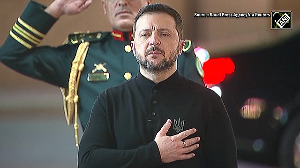Railway officials will be sharpening their managerial accounting skills at the Indian Institutes of Management. The railways are in talks with the IIMs for formulating modules to train the officials.
"We are bracing ourselves for accounting reforms that the Railways are undertaking. This will involve new concepts and a change in the decision-making parameters and the managerial accounting course will help in a smooth transition to the new practices," an official said.
He added that the railway ministry had already given directions that the officials be sent for two-three weeks' courses.
Ministry officials said that while for the lower cadre, officials would be nominated, it would be optional for those at a higher level. They added that the ministry intended to complete the training process in two years.
Railway Minister Lalu Prasad has reiterated the commitment to bringing the age-old accounting practice in the Railways at par with international norms.
This means the railways will need to change several of its present accounting practices. For instance, at present the working expenses of the railways are overstated.
This is because both the interest and principal on amounts borrowed from Indian Railway Finance Corporation are included under one head, while only the former qualifies as a current expenditure.
The railways will now focus on marginal costing practices, where comparisons of incremental costs and incremental revenues will be made to make business decisions, according to the official.
At present, they use the long-run average cost method, which includes fixed costs or one-time investments to determine whether a project is economical.
"There is a need to differentiate between appraisal of options and projects, which can come only if modern managerial accounting principles are applied," the official said.
For instance, laying a track in isolation may not be financially viable but when considered part of a whole route, a much higher rate of return will justify taking up the project.







 © 2025
© 2025